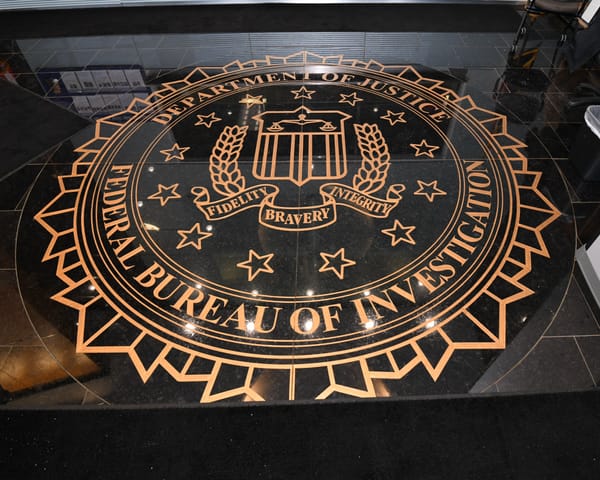Former President Donald J. Trump is doubtless the most investigated head of state in our nation’s history. Consider: The US National Archives and Records Administration reports that it recovered more than a dozen boxes of official documents that Trump had taken out of the White House to his estate at Mar-a-Lago, Fla. The Democratic Congress is investigating Trump in connection with the Jan. 6 riot (dubbed by Trump’s critics as an “insurrection,” although it appears to have been just an old-fashioned riot, since its perpetrators could not have realistically thought that they could overthrow the federal government).
“We need an entirely new agency.”
The same Congress claims that the former president raised a quarter of a billion dollars to overturn the 2020 presidential election but funneled the funds elsewhere. A Georgia prosecutor has empaneled a special grand jury to investigate Trump’s efforts to steer that state’s electoral votes into his column. Manhattan District Attorney Alvin Bragg is investigating whether the Trump real-estate organization inflated the value of its holdings to provide increased collateral for loans.
And these are in addition to myriad civil lawsuits.
Formally speaking, the force behind these federal investigations is the Department of Justice led by Attorney General Merrick Garland, who was deprived of a seat on the Supreme Court by Republican Sen. Mitchell McConnell, paving the way for Trump’s appointment of Neil Gorsuch to the high court. But the real force behind them is the Federal Bureau of Investigation. Few in either the executive or legislative branches of the federal government, and few even in state and local law-enforcement agencies as well as those occupying state political offices, are inclined to do anything to incur the bureau’s wrath. This is because of the breadth and vagueness of federal criminal statutes and the numerous regulations enacted pursuant to those statutes. The FBI, as a virtually autonomous fiefdom, can get just about anybody indicted. (As critics like to joke, “the FBI can indict a ham sandwich.”)
These criticisms are not new. I have been making them for decades, as have others. Solutions have been debated; there have been a few small reforms. None has proved effective. It seems clear that the current FBI is beyond needing a mere facelift. It must, quite simply, be abolished. All of its agents and executives should be fired. The agency should be simply abolished and replaced with an entirely new agency, with a new name, new agents, and new bureaucracy.
The FBI has been a highly controversial agency from the start. The bureau’s first director, the infamous J. Edgar Hoover, unlawfully and stealthily investigated many whom he considered Communists or subversives because of their leftist political views. He even investigated President John F. Kennedy, as well as the Rev. Martin Luther King, Jr. He kept an “enemies” list of his critics.
Hoover’s successors have had their black marks as well. I recall a meeting with FBI Director Robert Mueller, which I had requested to discuss my then-client, Dr. Jeffrey R. MacDonald, whose conviction and life sentence for the 1970 murder of his wife and two young daughters while stationed at Fort Bragg, NC, had proved very controversial, due in large measure to FBI misconduct. (The case is the subject of a major study by the documentarian Errol Morris in his 2012 book, A Wilderness of Error.) I, along with other members of the legal team, sat in a conference room waiting for Mueller to arrive, which he did, accompanied by several FBI agents. Mueller opened the meeting by announcing: “Criticism of the bureau is a non-starter.” The meeting was over before it started.
For several decades, I served on the board of the American Civil Liberties Union of Massachusetts, including two years as chairman. During that period, I heard scores of stories of FBI misconduct, including setting up innocent individuals with palpably false accusations of criminal violations. At the same time, the FBI overlooked the acts of the certifiably guilty. One prominent instance concerns the FBI’s investigation of the infamous Boston mobster James “Whitey” Bulger. It was discovered that a couple of FBI agents, including most notoriously John Connolly, were effectively on Bulger’s payroll. With their connivance, Bulger was allowed to terrorize the Boston area for decades. Eventually, Connolly was convicted and sentenced to 40 years in prison for second-degree murder.
Mark Felt, who rose from being an FBI agent to fill the post of associate director in 1971, was convicted in 1980 for violating the civil rights of those associated with members of the so-called Weather Underground by ordering his agents to illegally break into the homes of suspected revolutionaries and anarchists. His intentions might have been good, but he acted unlawfully. He was pardoned by President Ronald Reagan in 1981. (Interestingly, in 2005, Felt admitted to leaking the Watergate break-in story to The Washington Post’s Bob Woodward and Carl Bernstein, an act that led to the downfall of the president.)
Given its consistent history of being a lawless agency, from its very beginning until today, it is remarkable that no sitting president has moved to abolish the FBI. We need an entirely new agency and a director who has no history of having worked in or with the FBI. Agency culture is a powerful force, and if we are to have any success in ridding the nation of this menace, we best eradicate it completely and start over. Once this is done, Congress must impose real, not fanciful, oversight, which it may be more likely to do since the FBI’s in terrorem power over the members of Congress will be a thing of the past.
